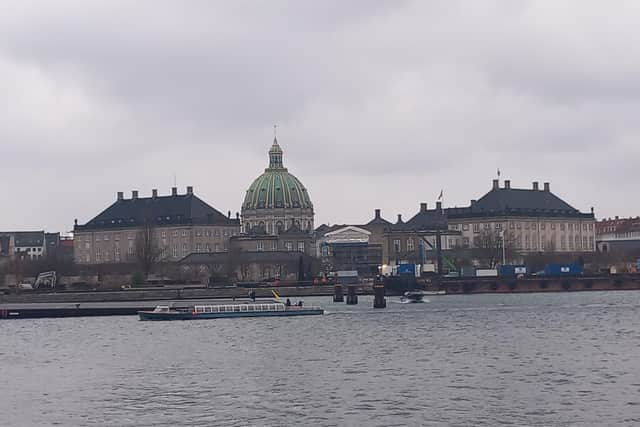What Yorkshire cities could learn from Copenhagen's green transport system: Greg Wright
We took the short flight from Leeds-Bradford Airport to Denmark and found ourselves in another world. We were transported into the city’s heart by a clean, fast-moving and punctual metro system.
Copenhagen is a city built around public transport and as we walked the tranquil streets we were immediately struck by how many of its citizens have taken up cycling, the greenest means of getting around.
Advertisement
Hide AdAdvertisement
Hide AdIt’s hardly surprising that Copenhagen came top in The Clean Cities Campaign’s list of Europe’s greenest transport hubs. The report to accompany the list highlights the fact that several cities, such as Oslo, Copenhagen and Amsterdam are on track to achieve zero-emission public transport by 2030.


Walking around Copenhagen, we were struck by the growing numbers of electric scooter-users, including businessmen who believe they offered the perfect, if perhaps somewhat inelegant, method of zooming between face to face meetings.
So why is Copenhagen top of the charts? The answer, according to the report’s authors, is all down to political leadership. The report states: “The best-performing cities are those where decision-makers set clear, strong objectives and make targeted investments.”
The report found that zero-emission car sharing is being rolled out rapidly in many cities, including Oslo, Copenhagen and Amsterdam, places which have also invested heavily in providing public charging infrastructure for electric vehicles. They are already reaping the environmental benefits.
Advertisement
Hide AdAdvertisement
Hide AdThe Clean Cities Campaign, which is a European coalition of more than 80 organisations campaigning for “zero-emission” urban mobility, calls on civic leaders to provide space and infrastructure for shared mobility, including cycling infrastructure, bus lanes, electric vehicle charging stations and parking for car sharing, as well as e-mobility hubs.
In Europe, around a quarter of greenhouse gas emissions come from transport. Air pollution causes more than 275,000 premature deaths each year across Europe, according to the report.
Pollution unquestionably contributes to a huge range of health conditions, such as asthma and heart disease. In general, British cities have lagged behind their Scandinavian rivals in lists of the greenest conurbations. But why should asthma sufferers in Copenhagen have less to fear from the air they breathe than their counterparts in much of the UK?
Political will and persistence are as important as funding and expertise when it comes to creating healthy, low carbon cities.
Advertisement
Hide AdAdvertisement
Hide AdPractical steps, such as providing funding and support for the electrification of Britain’s bus fleet and accelerating the roll-out of electric vehicle charging infrastructure, would make a huge difference.
It’s also important to spend time studying the places that are getting it right. A trip to Copenhagen could provide British policymakers with an insight into what can be achieved when environmental considerations dominate every civic discussion.
Greg Wright is the deputy business editor of The Yorkshire Post